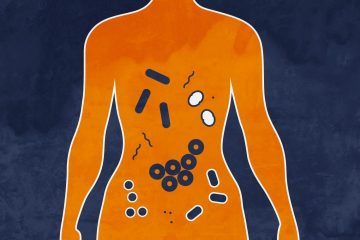From Science Daily:
 Melanie Rutkowski, PhD, of UVA’s Department of Microbiology, Immunology and Cancer Biology, found that disrupting the microbiome of mice caused hormone receptor-positive breast cancer to become more aggressive. Altering the microbiome, the collection of microorganisms that live in the gut and elsewhere, had dramatic effects in the body, priming the cancer to spread. “When we disrupted the microbiome’s equilibrium in mice by chronically treating them antibiotics, it resulted in inflammation systemically and within the mammary tissue,” she said. “In this inflamed environment, tumor cells were much more able to disseminate from the tissue into the blood and to the lungs, which is a major site for hormone receptor-positive breast cancer to metastasize.”
Melanie Rutkowski, PhD, of UVA’s Department of Microbiology, Immunology and Cancer Biology, found that disrupting the microbiome of mice caused hormone receptor-positive breast cancer to become more aggressive. Altering the microbiome, the collection of microorganisms that live in the gut and elsewhere, had dramatic effects in the body, priming the cancer to spread. “When we disrupted the microbiome’s equilibrium in mice by chronically treating them antibiotics, it resulted in inflammation systemically and within the mammary tissue,” she said. “In this inflamed environment, tumor cells were much more able to disseminate from the tissue into the blood and to the lungs, which is a major site for hormone receptor-positive breast cancer to metastasize.”
Most breast cancers — 65 percent or more — are hormone receptor positive. That means their growth is fueled by a hormone, either estrogen or progesterone. The good news is that these types of cancers are likely to respond well to hormone therapy. Predicting whether such cancers will spread beyond the breast to other parts of the body (a process called metastasis) is a major challenge within the field, and is primarily driven by clinical characteristics at the time of diagnosis. Early metastasis is affected by a variety of factors, Rutkowski explained. “One of them is having a high level of [immune] cells called macrophages present within the tissue,” she said. “There have also been studies that have demonstrated that increased amounts of the structural protein collagen in the tissue and tumor also lead to increased breast cancer metastasis.”
Having an unhealthy microbiome prior to breast cancer increased both, and the effect was powerful and sustained.
More here.
